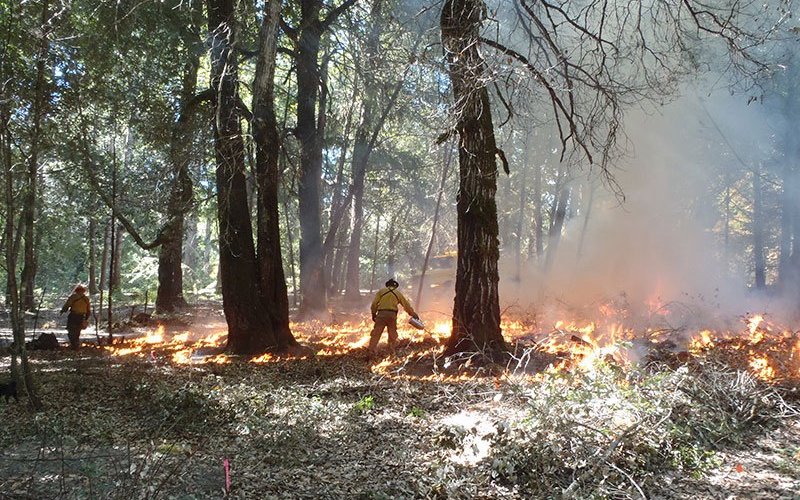
- Details
- By Josa Talley
Guest Opinion. As a Karuk Tribal member from the Klamath River, my heart goes out to everyone in Southern California who has been displaced or devastated by the recent wildfires. Our communities know this pain all too well—we, too, have seen homes reduced to ash and sacred lands scorched by wildfires. Fire, which can be a source of renewal, has become a destructive force, intensified by years of mismanagement, climate change, and systemic disregard for Indigenous knowledge.
The Klamath River region has faced its own wildfire crises. From these struggles, we’ve emerged with solutions rooted in Traditional Ecological Knowledge (TEK). Cultural burns—practices our ancestors used to prevent catastrophic fires and maintain ecosystem balance—are now being recognized by public agencies charged with wildfire management as a key strategy in building fire-resilient landscapes. These controlled, low-intensity burns reduce fuel loads, promote healthy forests, and protect our homes and waterways.
Unfortunately, hateful rhetoric is now circulating that distorts the fact, not only about the cause of the wildfires that are ravaging Los Angeles but also about a recent win for the environment: the removal of four aging hydroelectric dams from the Klamath River. These claims ignore the reality that the removal of these dams, which are more than 600 miles from LA, is a hard-fought victory for Indigenous communities who have battled for over 20 years to see them come down. These dams had been producing stagnant, toxic waters that nearly depleted our rivers of salmon, with the devastating 2002 fish kill being one of the most tragic outcomes. With the dams now gone, the river is flushing itself clean, and for the first time in 100 years, salmon are spawning above the former dam sites. This restoration is a major step toward healing both our land and our people, and in no way impacts water supplies in the rest of California.
This rhetoric from figures like incoming President Trump, and pundits on Fox News, seeks to divide us with false narratives. These words are not just divisive, they are rooted in ignorance and racism. By pitting Indigenous communities against our fellow California residents and distorting the facts, they deflect from the urgent climate crisis that demands collective action.
We stand in solidarity with all those affected by the wildfires across California. Our shared goal is safety, resilience, and a healthier future for our lands and waters.
Cultural burns and river restoration are not just Indigenous issues; they are California’s solutions. Together, we can confront the realities of climate change and build a more resilient future.
It’s time to move beyond divisive rhetoric and embrace unity. When we recognize the value of Indigenous knowledge and collaborate, we can protect our communities and our planet. We stand with Southern California’s wildfire survivors, and we urge everyone—from rural areas to urban centers—to join us in advocating for proactive, culturally informed climate solutions.
Our homes, our waters, and our lives depend on it.
Josa Talley (Karuk Tribal member) is the communications and outreach coordinator at Save California Salmon where she works to amplify Indigenous voices and advocate for the protection of California’s rivers, salmon, and communities. With a background in fire science, she also works to integrate fire management strategies for ecosystem health and resilience.
Help us defend tribal sovereignty.
At Native News Online, our mission is rooted in telling the stories that strengthen sovereignty and uplift Indigenous voices — not just at year’s end, but every single day.
Because of your generosity last year, we were able to keep our reporters on the ground in tribal communities, at national gatherings and in the halls of Congress — covering the issues that matter most to Indian Country: sovereignty, culture, education, health and economic opportunity.
That support sustained us through a tough year in 2025. Now, as we look to the year ahead, we need your help right now to ensure warrior journalism remains strong — reporting that defends tribal sovereignty, amplifies Native truth, and holds power accountable.
 The stakes couldn't be higher. Your support keeps Native voices heard, Native stories told and Native sovereignty defended.
The stakes couldn't be higher. Your support keeps Native voices heard, Native stories told and Native sovereignty defended.
Stand with Warrior Journalism today.
Levi Rickert (Potawatomi), Editor & Publisher

